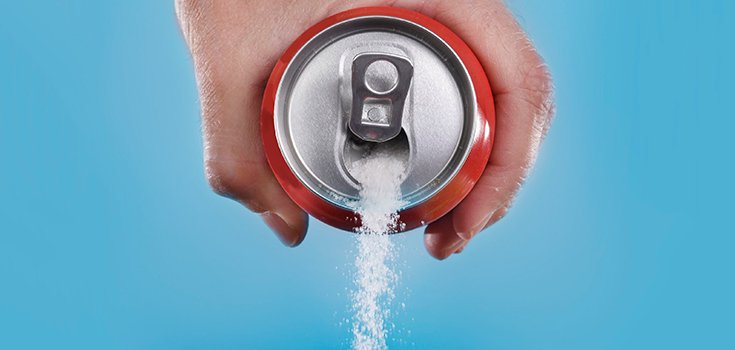Do You Agree with Soda Taxes? Sugar Consumption Down in Berkeley Due to the Measure

You might love the idea of a soda tax or hate it, but for better or worse, the tax is being instituted around the country. A new analysis released by researchers at UC Berkeley shows that Berkeley’s soda tax seems to be working
Kristine Madsen and her colleagues surveyed people in low-income communities before and after the tax was voted for in 2014, making Berkeley the first California city to impose a 1 cent-per-ounce tax on sugary drinks. [1]
Madsen said:
“I would say, ‘How often do you drink regular soda, like a Coke, or Sprite? Once a week? Once a month?’ And some people would just say, ‘Well, I drink it every day.’ And what we were trying to do was get some way of making everybody equal, so that everybody could be expressed as times per day that they drank soda.”
Berkeley implemented the tax 5 months ago, and since that time, lower-income residents have reduced their consumption of sugary beverages by 21%.
Madsen said that a 20% reduction in sugar-sweetened beverage consumption would be sufficient to reduce rates of obesity and Type 2 diabetes in years to come, adding:
“This would have a huge public health impact if it were sustained.”
And here’s a really crazy statistic: if a nationwide tax managed to reduce sugary beverage consumption by a similar amount, Americans as a whole could gain 101,000 healthy years over a decade. [2]

Read: Is a Soda Tax the Solution to Reducing Sugar-Consumption Worldwide?
In San Francisco and Oakland – both cities that had proposed a sugar tax but failed to push it through – increased their consumption by 4% during the same time period. [3]
The Break-Down
- Berkeley cut its consumption of regular soda 26%; Oakland increased its consumption by 10%
- Berkeley cut its consumption of sports drinks 36%; Oakland increased its consumption by 21%
- Berkeley cut its consumption of energy drinks 29%; Oakland cut its consumption by 14%
- Berkeley cut its consumption of fruit drinks 13%; Oakland cut its consumption by 12%
- Berkeley cut its consumption of sweetened coffee or tea 13%; Oakland increased its consumption 22%
Both Berkeley and Oakland increased its water consumption – Berkeley by a whopping 63%, and Oakland by 19%. [2]
Pleasantly Surprising Results
Economists were surprised by the 21% drop in sugary beverage consumption, said John Cawley, professor of public policy at Cornell University. The tax hiked up sugary drinks only modestly, and soda sellers did not pass the full cost of the tax onto consumers, but absorbed between 30% and 50% of the cost themselves. [1]
Cawley said:
“It makes complete sense that when prices go up, people buy less. That’s the law of demand. So I did expect to see some kind of decrease in consumption, but this is a very large decrease.”
Madsen isn’t sure Berkeley residents will continue to drink fewer sugar-sweetened beverages, noting that people may be more inclined to react to such a tax when it is new.
Cawley has his doubts, too:
“It will be interesting, as more information comes in, whether this finding holds up.”
Other Findings
- Only 2% of those surveyed in Berkeley reported crossing city lines to avoid the sugar tax. [3]
- Interest in Arizona Iced Tea, bottled Frappuccinos and other sweetened coffees and teas fell 13% in Berkeley, but rose 22% in Oakland and San Francisco. [2]
- More than 1 in 5 Berkeley residents told survey takers that the tax had caused them to alter their beverage consumption habits. Among these 124 people, 82% said they consumed sugary drinks less frequently, and 40% said they had reduced their portion sizes.
Sources:
[1] NPR
[3] EcoWatch
